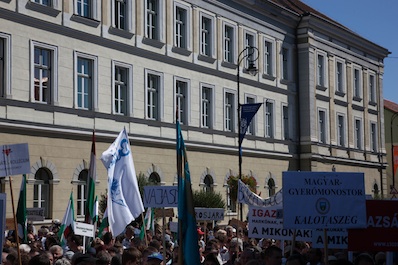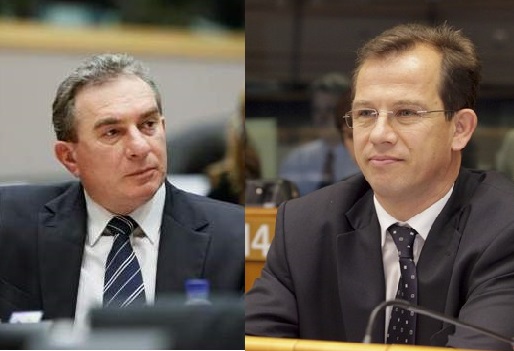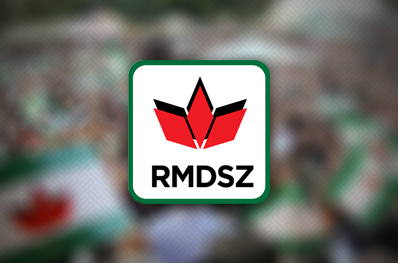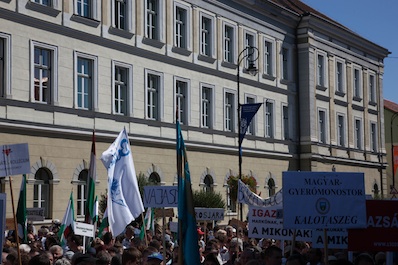13020.ro - Mikó Case
1. What’s the 13020?
13020 is the trial case number of a highly disputed Court ruling in Romania concerning the property right of the Hungarian community, specifically the Reformed Church, over a more than a century old high school building in Sepsiszentgörgy (Sfântu Gheorghe, Romania).
Recently by means of a politically motivated decision the Romanian judiciary renationalized the Székely Mikó Kollégium (Székely Mikó High School), which was rightfully returned to the Reformed Church in 2002. At the same time two of the three members of the Restitution Committee, Attila Markó and Tamás Marosán, were sentenced to three years of prison. The third member of the Committee, Silviu Clim, was sentenced to three years of suspended imprisonment.
An appeal was filed. The appeal will be judged on the 5th October, 2012 at the Appeal Court Ploiesti. The sentence will be final and irrevocable.
2. The history of the Székely Mikó High School from Sepsiszentgörgy (Sfântu Gheorghe, Romania)
In the region of Háromszék (Covasna county, Romania) the first school was created in the 1850s. Priests of the Reformed Church, elementary school teachers and nobles from several municipalities joined their effort to build a school. Later, Count Imre Mikó called for the building of a school in Sepsiszentgyörg. He also made important donations and ceded land for the building. The first buildings on the actual site of the school were finished in 1863-64. After the death of Count Imre Mikó the municipality decided to name the school Mikó Imre, adding also the names of the other founders: the Reformed Church and the People of Háromszék. Altogether its name became Református Tanoda Székely Mikó (Székely Mikó Public Reformed School).
Until the First World War the school was growing and consolidated step by step, new wings were built. Between the two wars the existence of the school was endangered, still the people’s donation made possible the building of a new school for girls. The bombing of the World War made important damages to the buildings and the teaching was suspended. It restarted in December 1944.
The Romanian state nationalised the Református Székely Mikó Kollégium in 1948, its name changed several times and the century long Hungarian teaching language was replaced by the Romanian. After the fall of the communism in 1989 the school was renamed Székely Mikó Kollégium and became again a Hungarian language school. The restitution was decided in 2002.
Nowadays the 153 years old school is the most important and most successful high school in Háromszék.
3. The process of the restitution of Church owned buildings in Romania
Following the fall of the communism one of the most important aims of the Hungarian community from Romania was to recover the confiscated land, forest, church and community properties. Creating the legal background for this process has not been easy. Proving property rights under the law has not been a smooth process. It has not been completed and the definitive restitution itself is far from being free of contradictions. In spite of this, the past fifteen years were marked by a series of gratifications and the property restitution process is still not over.
4. The restitution of the Székely Mikó High School
The Romanian Government Emergency Decree 83 adopted in 1999, in its appendix listed about 30, former Church properties. One year later, in 2000, the decree was amended to include an additional 60 properties as the first decree gave the government the option to amend the appendix with a decision, based on the Committee’s proposal. The list consisted of the claims submitted by the churches.
The Székely Mikó College building was included in the appendix to the decree as part of the amending decision.
The claims were reviewed by the ministers of Minority Affairs, the Ministry of Justice and the Ministry of Finance; thereafter they were submitted to the government for approval.
5. Who decided the restitution?
A Restitution Committee was formed for the restitution of properties and had an examining function: it did not have to determine whether or not the properties would be restituted to their owners, but instead it had to examine whether the documentation of the respective property was in order. The land registration of the respective property could occur solely on the basis of the protocol prepared by the Committee.
The members of the Committee were appointed by the head of the respective institution: Attila Markó, the representative of the institution that initiated the law, i.e. the Office of Minority Affairs, Silviu Clim on behalf of the Ministry of Justice and Tamás Marosán, legal counsel to the episcopate, the representative of the Reformed Church that initiated the restitution. They have signed all the protocols as the representatives of the respective institutions. The three-member Committee was active between 1999 and 2002.
Attila Markó, Tamás Marosán and Silviu Clim were not to make a decision about whether or not to return the property. If the documentation of the property was in order, they prepared a protocol for it.
6. Who is Attila Markó?
Attila Markó is a prominent politician of the Hungarian community, member of the RMDSZ (Democratic Alliance of Hungarians in Romania). He was the Head of the Interethnic Relations Department of the Romanian Government, during several mandates in the rank of state secretary. He is now deputy head of the same department.
He is author or co-author of every minority rights provision in the Romanian legislation. He drafted and proposed the Romanian ratification of the Council of Europe’s European Charter for Regional or Minority Languages. He was member of the working group which proposed the legislative act regarding the use of the mother tongue in the public administration and the public education in mother tongue.
Promoting the right to use the mother tongue he intervened for local communities in their aim to have bilingual signs in the municipalities, and possibility to contact the local authorities in their mother tongue etc.
Ha was also co-author of the legislative act concerning the restitution of Church and community properties, and the adoption of the anti-discrimination legislation in Romania. Since 1998, the adoption of the first Government decree concerning the restitution, he was member of all restitution committees – since 2003 as the only delegate of the Hungarian community. In this capacity he made possible the restitution of more than 1.100 lands, forest and buildings to their real owners, the Churches (all religious communities, including Orthodox, Greek Catholic, Roman Catholic, Reformed, Jewish etc.)
7. A short background of the case trial
At the time of the restitution - in spite of the objection of the municipality and the Reformed Church, two individuals, former subtenants, purchased apartments belonging to the campus of the High School. They intended civil law suit against the Reformed Church, attempting to prevent the restitution of the High School. The civil action was won by the defendant, the Reformed Church. In 2006 the ownership was finally given to the church.
On March 15, 2006, after the conclusion of the civil action, the families filed a criminal suit against 7 people. They brought a suit against the employees of the Land Registry Office that registered the building and issued the land certificate. They accused them of forgery. They also brought a suit against one of the church representatives, accusing him of forgery as well, and three members of the Restitution Committee. By the time the investigation started, the crimes of four individuals had been barred by the statute of limitations. Thus, in the end criminal action was instituted only against the members of the Committee.
After the criminal complaint the National Anticorruption Department (DNA) of the Office of the General Prosecutor took over the investigation and based on the complainers faked evidences they accused all the three members of the committee of abuse of authority. At the end of 2007, the DNA separately summoned the three members of the Committee to appear in Brasov for questioning. At the same time, it questioned the church representatives and many other people involved. In 2008, the DNA started to compile the trial case 13020, based on the minutes of these interrogations. The prosecution also requested the transfer of the case from the Tribunal of Sepsiszentgyörgy to the Tribunal of Buzau stating that “the local court can’t be objective because of the hostile atmosphere”.
During the trial the defendants presented several evidences. They presented all the documents confirming the committee’s legal status, including the restitution law and the final and irrevocable rules of the Appeal Court of Brasov and that of the Constitutional Courts. In addition all the documents proving the property’s ownership, land registry, nationalization decree and former Court decisions were presented. As proof of their innocence the defendants have shown that no material damages have been created.
The voice of power argued that the Reformed Church in Sepsiszentgyörgy was not the owner of the buildings of the Mikó College but rather the Romanian government since the buildings were mainly built thanks to public donations. This development is extremely perilous primarily because a significant portion of our churches and community buildings belonging to the church were also built thanks to public donations. If this logic is correct, then a house rebuilt by joint efforts from materials provided by the community of a village is also the property of the government as it was built thanks to public donations! On the other hand, it is also not insignificant that out of 1.100 restitutions this is the first (and only) case where criminal proceedings were instituted.
Despite all facts and presented evidences the primary Court sentenced Attila Markó and Tamás Marosán to 3 years of imprisonment and sentenced Silviu Clim to 3 years of suspended prison term, reasoning that the Romanian nationality member Silviu Clim is retired and has a severe heart condition. Indeed Silviu Clim is retired and has medical problems, but still the Court violates the principle of solider responsibility.
Furthermore the Reformed Church is obligated to repay 1.2 million lei – 270.000 EUR - to the local government, the value of the rent that was paid in order to ensure the public school’s continued operation in that building.
8. What’s the next step of the case trial?
The appeal will be judged on the 5th October, 2012 at the Appeal Court of Ploiesti. The sentence will be final and irrevocable.
9. What’s the message of the court’s decision for the Hungarian community from Romania?
The ruling of the Court has no several legal, social and community consequences, while it is based on misjudgement, it cannot be considered or independent, nor free of pressure.
We consider the sentence as a serious threat and attack against the whole Hungarian community in Romania.
We consider that each Hungarian individual was sentenced to 3 years of imprisonment, because our whole community aimed the restitution of the properties after five decades of communist regime. Thus everybody who applies the law might be condemned in future to 3 years of prison.
We are back again to the times when Church and community properties were nationalized just by a signature. Such Court decisions and fake trials serve as precedents to mayors, prosecutors, and practically to anyone who would intend the restitution of formerly nationalized properties.
Meanwhile these kinds of decisions have an important message for the Hungarian community that given rights may be taken away. It also causes doubts about the independence of the judiciary, and makes people sceptical about the ability of the legal system to seek for the truth and defend their elementary rights, such as the right to private ownership.
SEVERE CONSEQUENCES
• The building of the Székely Mikó Kollégium will be taken away from the church and given to the local government of Sepsiszentgyörgy, thus to the state.
• Mayors that are anti-Hungarian or less supportive of Hungarians might return the ownership of any other type of church property to the government in the same manner.
• There are hundreds of returned properties around the country in which an educational institution was operated. All these property status could be endangered.
• Furthermore, not only schools, but also the ownership right of other returned properties might be endangered.
• The restitution process could be stalled for good. Previously the government intended to adopt a law to abolish restitution in kind. This law was taken off the on the pressure of the RMDSZ
• Since the case of the High Scholl building in Sepsiszentgyörgy is on trial, no other property has been returned despite the fact that Churches still have hundreds of such claims.
The Court sentence is an attack to the fundamental rights of the individual, it is anti-European, and it is targeted against the Hungarian national community.
We ask all political and civic organisations, church leaders and other leaders, organizations, institutions and all those persons who consider this sentence irrational and abusive, targeted against the Hungarian minority from Romania to express their protest and solidarity in this abusive situation.
We also ask you to put on the agenda, discuss and bring to public attention the information we shared with your, thus helping us enforcing the state of law and justice in Romania.



